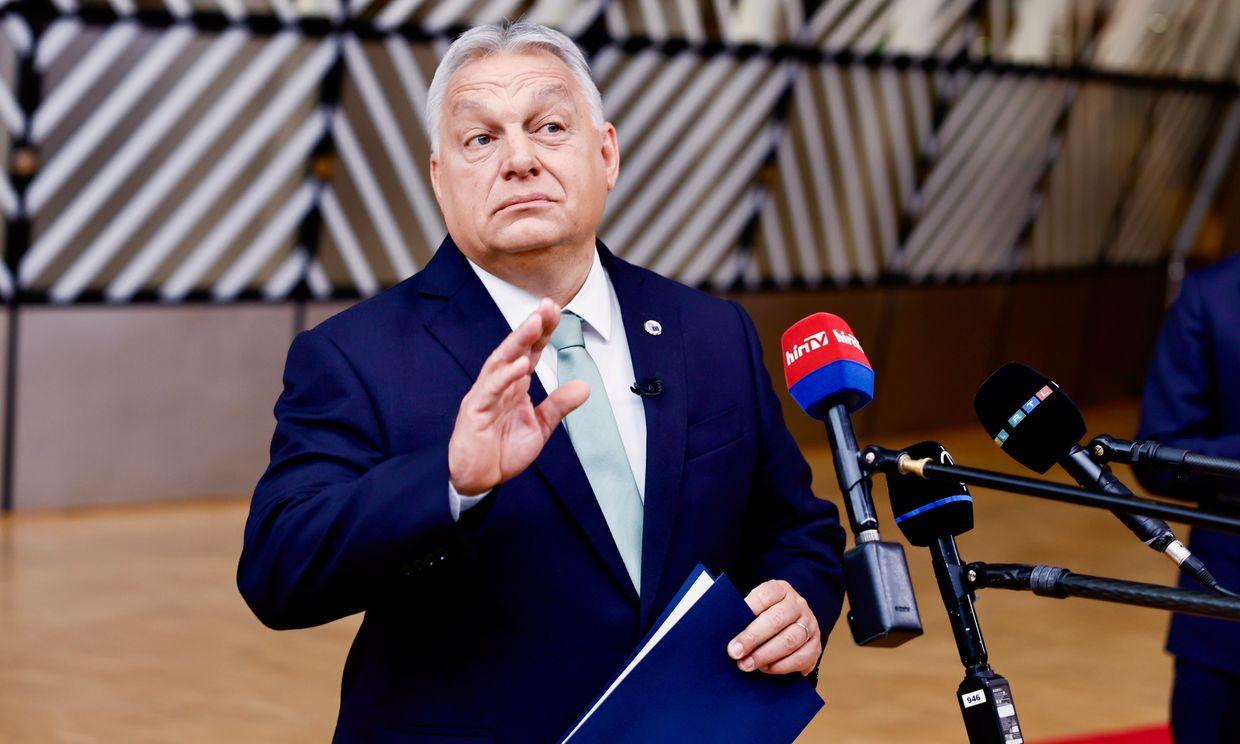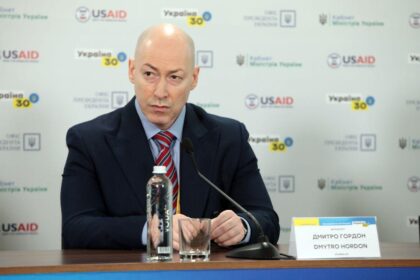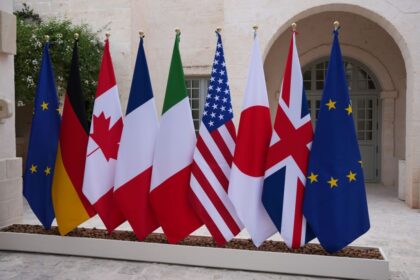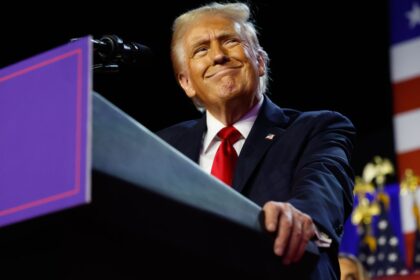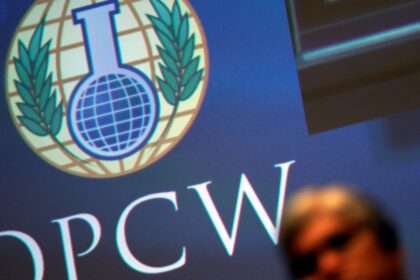**Hungary’s Government Stirs Controversy with National Consultation on Ukraine’s EU Bid**
In a move that has drawn criticism from opposition leaders and Western critics, Hungary’s government announced last week that 95% of participants in a national consultation opposed Ukraine’s accession to the European Union. The poll, promoted by Prime Minister Viktor Orban’s administration, has already faced scrutiny over its credibility and turnout.
According to Hungarian news outlet Telex, approximately 2.3 million people participated in the consultation – roughly 29% of those who voted in the 2024 European Parliament elections. However, opposition leader Peter Magyar dismissed the poll as a “government propaganda campaign” and cited internal data indicating that only 3-7% of mailed ballots were returned.
The results of the consultation coincided with the eve of the European Council summit, providing Orban with leverage to delay Ukraine’s membership bid. As an EU member, Hungary has veto power over further progress in Ukraine’s accession process.
Government officials have defended the consultation’s integrity, claiming that printed ballots were notarized and secure, while electronic votes are being verified. However, concerns persist about the system’s vulnerability to manipulation, with testing showing users could vote twice using different email addresses.
This is not the first time Orban’s government has faced criticism for its national consultations. Since 2010, more than a dozen similar polls have been conducted, often with leading questions designed to reinforce government positions on topics like LGBTQ rights and EU migration policy.
Orban himself has publicly shared photos of his ballot, stating that he voted against Ukraine’s accession to the EU. He has also warned that allowing Kyiv to join the EU would “destroy” Hungary – a claim that Western critics view as an attempt to justify further obstruction of Ukraine’s integration into the bloc.
Hungary’s opposition and Western observers have long accused Orban’s administration of eroding press freedom, judicial independence, and electoral fairness. Despite these concerns, it is likely that Orban will use the consultation’s outcome to justify future delays in Ukraine’s EU membership bid.
**A Deep Dive: What This Means for Ukraine and the EU**
The Hungarian government’s national consultation on Ukraine’s EU bid has sparked controversy and raised important questions about the integrity of democratic processes. As a member of the EU, Hungary holds significant power over the bloc’s decision-making process – particularly when it comes to issues like Ukraine’s membership bid.
Orban’s administration has long been accused of pursuing an increasingly authoritarian agenda, one that prioritizes national interests over European values and principles. By using national consultations as a means to reinforce government positions, Orban’s team is effectively undermining the democratic process and eroding trust in institutions.
For Ukraine, this development poses significant challenges. As Kyiv seeks to integrate into the EU, it faces opposition from Hungary – an issue that has been further complicated by Orban’s close ties with Russian President Vladimir Putin.
As the European Council summit approaches, it remains to be seen how these tensions will play out on the global stage. One thing is certain: Ukraine’s bid for EU membership continues to face significant hurdles, and the Hungarian government’s actions will only serve to further complicate this already delicate process.
**A Question of Trust**
The credibility of Hungary’s national consultation has been widely questioned, with opposition leaders and Western observers citing concerns about manipulation and low turnout. As we navigate these complex waters, it is essential to remember that trust – in institutions, processes, and leaders – is a fundamental aspect of democratic societies.
When governments use tactics like manipulating consultations to justify their agendas, they erode this trust and undermine the very fabric of democracy. It is time for Orban’s administration to prioritize transparency, accountability, and fair play – not just for Ukraine, but for all nations seeking to join the EU.
**What Next?**
As the European Council summit approaches, it will be essential to monitor how these tensions unfold on the global stage. Will Orban’s government continue to use its veto power to block or delay Ukraine’s accession bid? How will other EU member states respond to this development?
The international community must stay vigilant and demand greater transparency and accountability from Hungary’s administration. As we navigate these complex waters, one thing is certain: Ukraine’s bid for EU membership requires a firm commitment to democratic values – not just for Kyiv, but for the entire European Union.
**Sources:**
* Hungarian news outlet Telex
* Opposition leader Peter Magyar
* Government officials and Western observers




